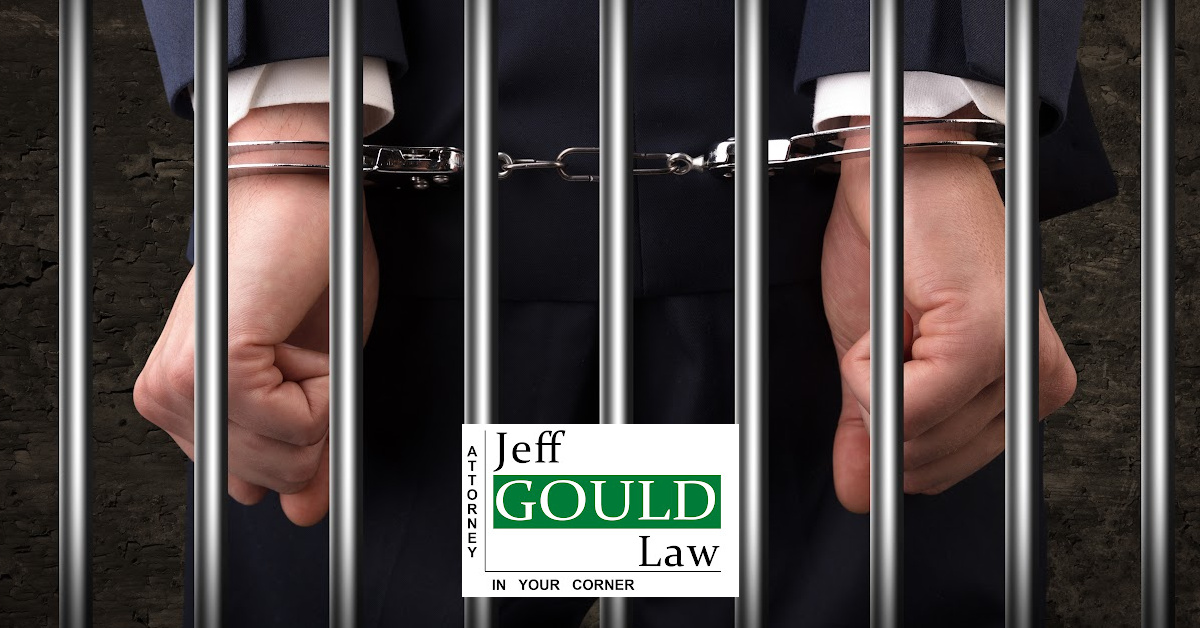While there are many types of crime, most criminal acts can be divided into five primary categories: crimes against a person, property crimes; inchoate crimes; statutory crimes, and “white-collar crimes.” At Jeff GOULD Law, we know that, unfortunately, crime is a fact of life. Last year in Arizona, there were a reported 210,779 crimes, ranking it with the 14th highest crime rate in the Nation. Here are the 5 types of criminal offenses.
- Crimes against a person
Crimes against a person involve the use, attempted use, or threatened use of force or harm to cause physical or mental pain to another individual. When the harm to another individual is so great that it causes death, the defendant may be charged with homicide, including, for example, first-degree murder or vehicular homicide. Conversely, violent crimes that don’t result in death could include assault and battery, arson, abuse, or kidnapping.
Homicide is the broad term that covers killing of a person by another, including all forms of manslaughter and varying degrees of murder. The distinctions between varying types of homicide are dependent on the circumstances surrounding the killing that took place. Manslaughter is a homicide in which the killing was unintentional. Murder itself has two classifications, second and first degree. Second degree is a homicide with no preconceived intention of killing and is punishable by up to 15 years in prison. The more serious of the two, first-degree, is punishable by up to 25 years in prison.
- Property crimes
Property crimes are exactly what they sound like: crimes involving interference with another individual’s property rights. While they may involve harm to another individual, property crimes primarily result in the inability of the property owner to use the property rather than actual personal injury.
Many property crimes are theft crimes, including burglary, larceny, or robbery. However, incidents involving property damage and not explicit theft or arson, for example, are property crimes as well. While many property crimes involve defacing or damaging physical property or private real estate, property can include buildings, objects, or intellectual property such as patents.
- Inchoate crimes
Inchoate crimes occur when a crime is initiated but never completed or when one commits an act that assists in the commission of a crime. Inchoate crimes require substantial and tangible steps towards completing a crime, not just the intention to commit it. Inchoate crimes include aiding and abetting, attempt, and conspiracy.
In some cases, inchoate crimes can be punished to the same degree as other crimes, but often the penalties are less severe. In Arizona, the general rule for inchoate crimes is considered to be one degree less than the fully completed attempt. For example, house burglary is a second-degree felony punishable by up to 15 years in prison: while, an attempted house burglary is a third-degree felony punishable by up to 5 years in prison.
- Statutory crimes
Statutory crimes involve all crimes described by statute rather than common or unwritten law. Statutory law is written and decided by the legislature or governmental body rather than in court. Under common law, laws are created by decisions of judges who base their judgment on the precedent set in previous cases with similar circumstances. Statutory laws are those enacted by the government.
Statutory crimes include driving Under the Influence (DUI), public intoxication, refusing field sobriety tests (FST), minors in possession of alcohol, or any other crime prescribed by statute. The punishment for statutory crimes is not generally different from common law: both are entirely dependent on the nature and circumstances of the crime itself.
- “White-collar” or financial crimes
“White-collar” or financial crimes typically involve deception or fraud for financial gain. While White-collar crimes derive their name from corporate officials who historically perpetrate them, white-collar crimes are not exclusive to any person or industry. White-collar crimes are not often violent and include blackmail, embezzlement, money laundering, tax evasion, and/or fraud.
More serious financial crimes, like bank, mail, or wire fraud, can land a perpetrator with up to 30 years in jail, while other financial crimes impose hefty fines upwards of $100,000 for individuals and $500,000 for corporations.
Every criminal charge is serious. It’s critical to have someone knowledgeable about the inner workings of the criminal justice system on your side. If you or someone you know is facing criminal charges in Arizona, Jeff GOULD Law, the Attorney in YOUR Corner, is committed to providing a professional and thorough defense of your freedoms.
DISCLAIMER: The information on this blog/site is NOT, nor is it intended to be, legal advice. It is for general informational use only. You should consult an attorney for advice regarding your individual situation. Further, this information does not create an attorney-client relationship.


